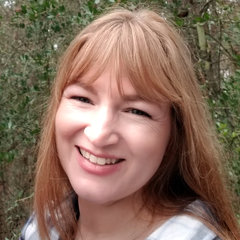What You Should Know About Organizational Leadership

I’ve been an accidental leader for most of my life. Perhaps this is why once I decided to return to college for my undergraduate degree, Organizational Leadership caught my eye. This seemed like a degree that would help me be more intentional about the next phase of my future.
What You’ll Learn in an Organizational Leadership Degree
Organizational leadership prepares students for work in the public, private, and nonprofit sectors. It examines theories of leadership, management, organizational behavior, and change. It also lays the groundwork for managing complexity in domestic and international environments. This may seem abstract, but I’ve grasped practical skills, too.
For example, one of the most important capabilities of leaders is self-management and continuous personal growth. Especially in light of emerging business and financial scandals in the last decades, leaders need strong, ethical spines; and this requires periodic, honest self-examination and improvement.
Thriving organizations grow and adapt. Leaders must be on the leading edge of this change. I’ve studied this topic from a leadership perspective, a management perspective, an organizational perspective, and an individual point-of-view in my organizational leadership degree. I’ve learned about managing human and intellectual capital, organizing, and leading teams and planning projects. I’ve enjoyed and found immediate application for everything I’ve learned, but there were a few things that surprised me:
How Organizations Level-Up
One of the things this degree covers is the structural requirements for scaling an organization.
As organizations grow, they tend toward hierarchical management structures in order to remain efficient and consistent in their products and services. However, there’s a threshold for this kind of structure, a point at which the structure will no longer support or sustain growth (typically when an organization becomes global). When this happens, leadership is decentralized. In other words, power is no longer only at the top of the organization; leadership is redistributed throughout the organization. When this happens, the average employee is charged with a substantial amount of responsibility and trust. So how can leaders empower others while being confident that individual goals and organizational goals will be aligned?
Coursework in organizational leadership explores the answers to this question and many others.
Good Leaders Have Self-Management Routines
As mentioned previously, leaders must pursue continuous personal and character growth. This is part of a portfolio of self-care. Some of the leaders in my life have been prone to burnout, exhaustion, and illness in the name of “serving the cause.” However, effective leaders practice healthy personal care: spiritual, relational, physical, emotional, etc.
This should have been self-evident to me, but for some reason, I had never heard this explained by any of the great leaders in my life. After experiencing some burnout and illness myself due to an imbalance of work and rest, I organically began to recognize when I needed to take some time to recharge. Now, though, I do this much more intentionally (and without guilt). I also build times into my days, weeks, months, and year to evaluate personal growth and develop strategies for improvement.
What Can You Do with an Organizational Leadership Degree?
This is a management degree, and depending on which leadership electives you choose, it can prepare you to work in businesses, government, and philanthropic organizations. It is particularly useful for human resources management, as an organizational change management consultant, training and development manager/consultant, nonprofit manager, and in public management.
No matter the target for employment, if you’re considering a degree in Organizational Leadership, use the opportunity to immerse yourself in the learning by applying what you learn to organizations in which you’re already involved. Use the knowledge and skills you learn along the way to add value in your volunteering, in your relationships, and even your current job.
I’ve heard from managers and nonprofit leaders that their organizations suffer from a leadership vacuum. Mostly, I think, because people are more concerned with “doing things right” instead of asking “What’s the right thing to do here, and how can I participate?” Leadership in its simplest form is beneficial, proactive influence. Even if you’re an entry-level employee at a coffee shop, movie theater, or fast casual restaurant, you can take the initiative and show leadership. In doing so, you’ll add value to the organizations and the lives around you.
